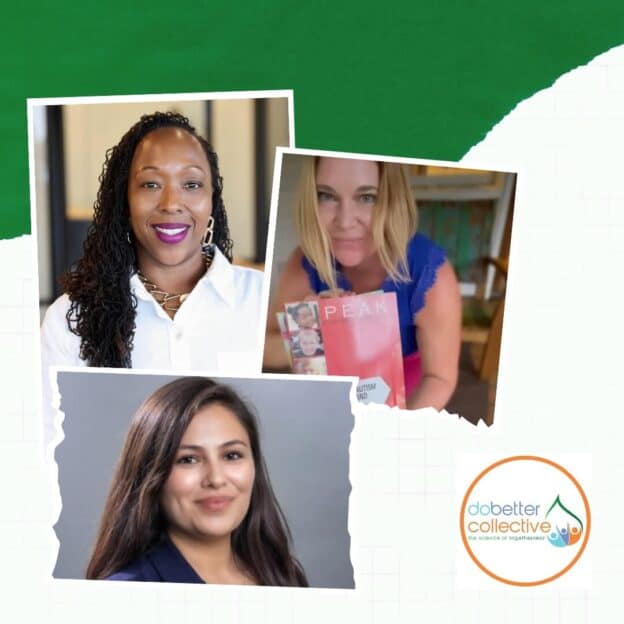This 8-week course is designed for behavior analysts, teachers, parents, and other professionals involved in teaching language to autistic and language-delayed children. Participants will receive in-depth, practitioner-focused training in Relational Frame Theory (RFT), generative instruction, and the PEAK assessment and curriculum, addressing the common challenges of rigid language repertoires, prompt dependence, and limited progress in language acquisition.
The course consists of weekly 2-hour live lectures that provide in-depth exploration and practical applications of these concepts. Each session is structured to break down complex theories into actionable strategies, supported by comprehensive resources and practical exercises. Participants will engage in interactive discussions, receive personalized feedback on homework assignments, and have access to sample programs, articles, and tools to facilitate the implementation of new techniques in their practice.
Attendees will receive an assessment tool to determine the appropriate focus on generative learning and RFT, identifying prerequisite skills and guiding program development. This program is structured to enhance professional practice, ensuring participants are equipped with the latest, evidence-based methods to support their clients effectively.
About Carol Gonzalez,BCBA
Carolina Elizabeth Gonzalez currently serves as the Associate Vice President of Clinical and Quality Outcomes at Special Needs Network. Her journey began with a focus on children who were behind by up to two years in English and comprehension. Prior to joining Special Needs Network, Carolina gained valuable experience working as a teacher in a Montessori setting, where she developed a passion for helping children reach their full potential. Upon joining Special Needs Network, Carolina found her calling during the all-inclusive summer camp program, where she felt a deep connection. It became her mission to give back to her community and support younger generations, particularly those with various diagnoses.
Over the past 14 years with Special Needs Network, Carolina has held numerous roles. She has spearheaded art programs, mentored parents in advocacy, led social skills programs, become a behavior analyst, directed the quality assurance department, facilitated the transition of new behavior analysts into their roles, and served as Camp Director for the summer program. More recently, she oversees in-home ABA services and the interdisciplinary center situated in front of Martin Luther King Hospital. Her collaborative efforts encompass working with occupational therapists, speech pathologists, early intervention specialists, social skills trainers, vocational skills trainers, and applied behavior analysts.
In her clinical roles, Carolina conducts evaluations, and develops curriculums to address the diverse needs of individuals she serves. Some of her many emphasis in ABA is addressing rote responding by teaching RFT and PEAK to new clinicians while building trainings and curriculums. Beyond her roles at Special Needs Network, Carolina has also served as a professor, educating master’s level students, and has spoken on various panels addressing cultural competency and interdisciplinary practices. Notably, she has developed and led curriculums aimed at bridging the gap in vocational skills among youth aged 15-24. Currently, she is also in the process of leading BIPOC individuals into academia, including conducting research.
Carolina’s dedication, commitment, and passion have been instrumental in the success of the services provided to our communities. She continues to advocate for her community and empower youth, embodying the belief that the sky is the limit. In the coming year, Carolina plans to pursue her doctorate, with the goal of furthering equality in services for families and continuing to mentor and lead the youth.
About Stephanie Bolden, BCBA
Stephanie Bolden (she/her) is a principled and passionate woman. She is a proud Dillard University and Florida Institute of Technology alum! Her research interests include behavior analysts’ training and practices regarding cultural diversity, cultural and social determinants of behavior, behavior analysts’ supervisory relationships and the benefits thereof, and RFT. Stephanie has been an active practitioner in the field of Applied Behavior Analysis since 2014.
Learning Objectives:
- Understand the Foundations of Relational Frame Theory (RFT):
Participants will explain the key principles of RFT, distinguishing between arbitrary and non-arbitrary relations and how they relate to language development in autistic and language-delayed children. - Identify and Assess Generative Language Abilities:
Participants will learn to use assessment tools, including the PEAK assessment and TARPA, to evaluate generative language skills, focusing on identifying advanced, basic, and visual-perceptual language profiles. - Implement PEAK Curriculum for Language Development:
Participants will be able to explain how to select and implement PEAK programs tailored to their clients’ language profiles, promoting derived relational responding and equivalence-based teaching. - Address Common Challenges in Language Acquisition:
Participants will identify solutions to overcome issues such as rigid language repertoires, prompt dependence, and slow progress in language acquisition by applying RFT-based interventions. - Design Instructional Programs Based on Generative Learning Principles:
Participants will create individualized instructional programs that incorporate generative learning techniques, helping clients develop flexible, adaptive language repertoires. - Analyze Client Progress Using Evidence-Based Assessment Tools:
Participants will use tools like PEAK and other assessments to track client progress in language development and relational responding, adapting their interventions based on data-driven insights. - Apply RFT to Enhance Language Interventions:
Participants will be able to explain how to incorporate relational frame theory into language interventions, utilizing derived relational responding techniques to foster generative learning. - Assess and Tailor Language Programs Based on Learner Profiles:
Participants will use the course’s decision-making flowchart to assess clients’ learner profiles (advanced, basic, visual perceptual, or other) and tailor programs accordingly, enhancing the effectiveness of interventions. - Develop Skills in the Practical Application of PEAK and TARPA Assessments:
Participants will gain hands-on experience with PEAK and TARPA assessments, learning how to assess both advanced and basic language skills, as well as relational frames, and design programming based on assessment results. - Bridge the Gap Between Traditional Verbal Behavior and RFT-Based Practices:
Participants will critically evaluate traditional language teaching approaches, like those based on Verbal Behavior and EIBI models, and incorporate RFT-based methods to improve language outcomes in clients.


Responses